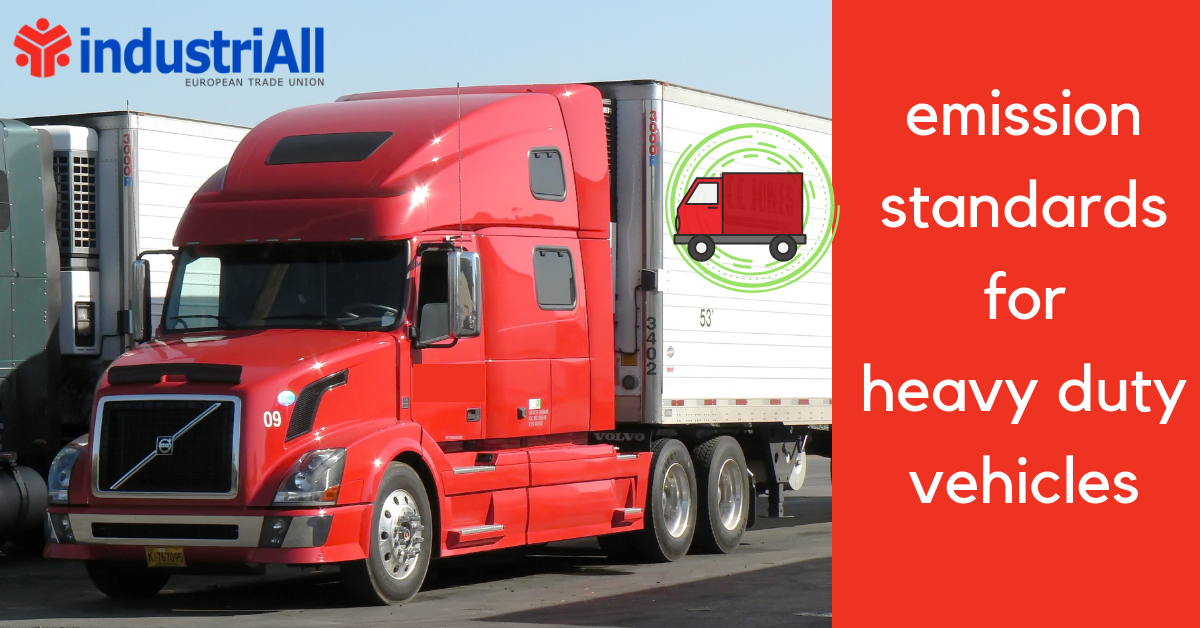We support the original proposals of the Commission. They will contribute to achieving the EU’s commitments under the Paris Agreement, reduce fuel costs for transport companies, keep the industry at the cutting edge of technological development. As trade unions we always call for a ‘just transition’. This means that we must avoid disruptions that negatively affect jobs. It has to be considered that trucks are very complicated products and that the truck market is very diversified
On 14 November the European Parliament plenary will vote on emission standards for new heavy duty vehicles. This will be the first CO2 standard for trucks in the EU.
Originally the Commission called for a 15% CO2 reduction by 2025 and an aspirational objective (until a review of the legislation due in 2022) of 30% by 2030.
However, the environmental committee set tougher targets: 20% by 2025 and a binding 35% (at least) by 2030. At the same time a mandate is proposed for zero and low-emission trucks: 5% by 2025 and 20% by 2030. For city buses the mandate is even higher: 50% by 2025 and 75% by 2030 (and stricter focusing only on zero-emission buses).
IndustriAll Europe fully supports ambitious targets for trucks as they represent a large untapped potential for further emission reductions in the transport sector. Reduced emissions will go hand in hand with lower fuel consumption and thus have a positive impact on the total cost of ownership.
Nevertheless industriAll Europe also calls for caution:
- IndustriAll Europe is of the opinion that the original proposal of the Commission for a reduction by 30% by 2030 is both ambitious and realistic;
- In our opinion an objective of 20% by 2025 is unrealistic because of the long investment cycle for trucks (both for producers and users).
- IndustriAll Europe also supports the Commission proposal for introducing a super-credit system to promote the uptake of zero and low-emission trucks. According to industriAll Europe it is too early to impose a mandate as there are too many unknowns about the market potential of these vehicles
- The proposed penalties are excessively high and could push companies out of business rather than encourage them to meet the CO2 targets.
“We support the original proposals of the Commission. They will contribute to achieving the EU’s commitments under the Paris Agreement, reduce fuel costs for transport companies, keep the industry at the cutting edge of technological development. As trade unions we always call for a ‘just transition’. This means that we must avoid disruptions that negatively affect jobs. It has to be considered that trucks are very complicated products and that the truck market is very diversified”, said Luc Triangle, General Secretary industriAll Europe.
